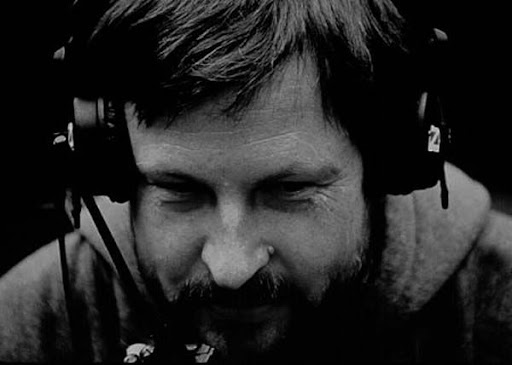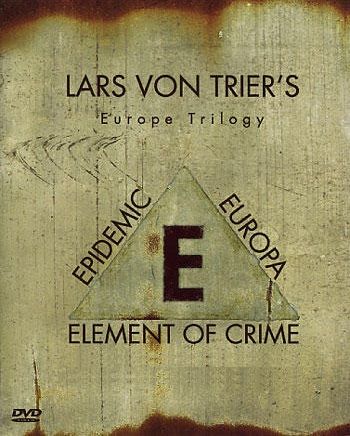
Lars von Trier takes chances. Artists need to take chances or they end up being old hacks. However much one wants to gripe about von Trier, he constantly pushes the envelope- and although he may fall flat on his face at times, he always gambles with his work. Here's von Trier's Europe trilogy. Enjoy.
By the way, we hit one hundred thousand pageloads today. Yaaaaaaay!!
Editorial note: We celebrated and I'm drunk so I've probably missed some mistakes and I haven't fulfilled my editorial duties. But I did hear a really bad cover of Heaven Knows I'm Miserable Now. Really bad. -L&S
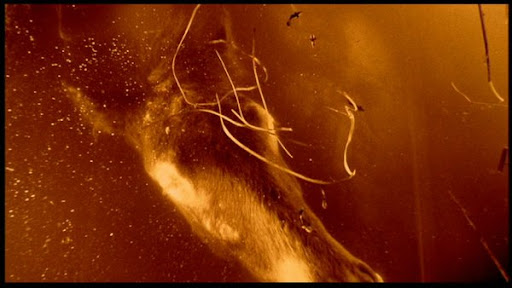
From Thomas Beltzer at Senses of Cinema:
In Tranceformer: A Portrait of Lars von Trier (Stig Björkman, 1997), a hand-held camera, without any preamble, shows us von Trier as he launches the documentary by stating with a malicious grin, “I’ll gladly assert that everything said or written about me is a lie.”
This statement could be true of the Björkman documentary, this essay and anything von Trier may say about himself in the future. All the same it is a significant caveat for any approach to von Trier and perhaps the only true thing that can be said about him. Later in Tranceformer, he describes his own life as a fabrication, yet his long-time producer, Peter Jensen, says that he never lies. This paradox can be resolved, however, once we accept that von Trier’s life and work are offered to the world as a seamless fictional whole and that all fiction is fabrication and subject to multiple interpretations. His editor and film school partner, Tomas Gislason, describes him as “a…playful rascal.” His lead in two films, Ernst-Hugo Jaeregard, offers that he is an “absolute opponent to all kinds of intellectual authority.” Von Trier describes himself and his work as “a provocation.” Peter Jensen says, “his loyalty is also of a Middle Ages order. He’s a knight. A little knight.” This last assessment provides a key to reading the text that is von Trier: he is an idealist and a believer who suffers the pangs of true belief and who constantly ’tilts’ for his ideals. In contrast to Ingmar Bergman, whose films are about the angst of the unbeliever and the yearning to believe, von Trier’s films are all about the angst of the believer and wanting to not believe.
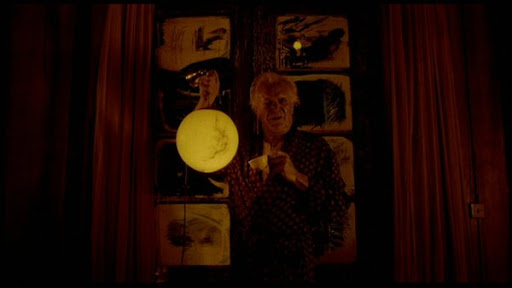
Lars Trier (He added ‘von’ in the tradition of Eric von Stroheim) was born April 30, 1956 in Copenhagen to what Lucia Bozzola describes as “radical, nudist Communist parents.” Speaking of his childhood, von Trier recollects:
According to me, I was too free, as it is such a cause of anxieties …I missed the love an authority with definite parameters can bring, because that is a form of love.
As a child, von Trier was under the impression that everything was permitted except “feelings, religion and enjoyment”, three things his films would deliver in spades in his later rebellion. At age 11 he began to make short films with his mother’s Super 8 camera, and a year later he starred in the Scandinavian television series Clandestine Summer (1968). Left to his own devices, he dropped in and out of school, drank wine and watched movies. By the time he entered Copenhagen’s film school in the early ’80s he “…knew all the film classics. Knew them by heart,” according to Gislason. Von Trier describes himself as an enfant terrible during this period.
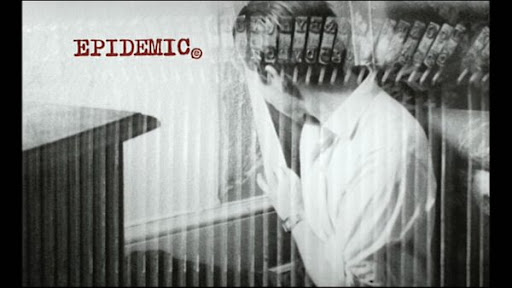
Listening to him talk about his films, one senses that in school he developed a lifelong delight in breaking conventions and rules. He made the early films work despite (or because of) opaque story-lines, self-conscious voiceovers, and unusual manipulations of sound and image. Still, in the later films we are startled with drifting, hand-held cameras and improvised dialogue and blocking, not to mention soap-opera histrionics, uncomfortably real sex and art stills inserted into the narrative. His mother’s death, which he speaks of with a sense of relief, seems to have been a turning point in his life. Even as he personally embraced the formality of Catholicism, his films went “low church” striving for spontaneity, speed and improvisation in contrast to his obsessively controlled early films. Borrowing “high church” language, he helped create the ironically named Dogme School, the film equivalent of punk rock. In yet another paradox, even as he rejected his parent’s communism, he used it, with producer Peter Jensen, as a basis for their own film collective, thus wresting control of film production away from the Danish government. Although his films are a complex dialogic extension of his own paradoxical nature, in general they follow the trajectory of T.S. Eliot, first depicting the wasteland and then transcending it with faith.
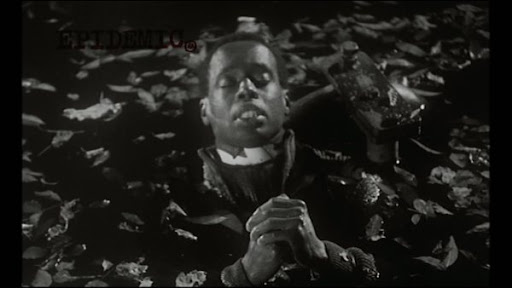
Von Trier’s first three films – all presented in dazzling, baroque virtuosity – are a trilogy about a Europe that has been lulled to sleep in the midst of its own chaos and death. In all three films the hero (or anti-hero) is an idealist who wades confidently into a stinking quagmire, determined to right all wrongs, but, as von Trier points out, “you can be sure that when they’ve done the right thing, it’s gone wrong and they also did it badly.” Von Trier repeatedly discovers that it is impossible to address evil without perpetuating it, a sin he maliciously passes on to the viewer.
In a creative mix of Kafka and Borges, The Element of Crime (1984) is a tale of labyrinthine absurdity in which Fisher, a symbolically named detective, becomes Harry Gray, the serial killer he is pursuing. Fisher’s downfall is the result of his unquestioning belief in the book on criminology written by Osborne, his ailing professor. “I cannot stop until I understand. I must do things by the book,” Fisher tells his prostitute partner, Kim, who replies that she cannot follow him that far. The hypnotist/narrator who has led him into this nightmare Europe says, “I’m afraid you leave me behind too, Harry” (calling him by the killer’s name). Indeed, his blind faith in the method leaves us all behind because he becomes an evil child killer as a result. Among other things, The Element of Crime is von Trier’s critique of fundamentalism of all sorts (religious, political, artistic) and of his ironic, self-loathing view of his own film-school skill. Without showing any graphic violence or carnage, he uses jaundiced color and flooded, ruined sets to create the most menacing and horrific environment in recent memory.
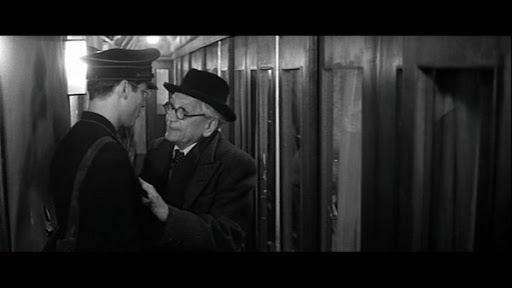
His second film Epidemic (1987) is not available in the U.S. and this is a shame because it is a brilliant and beautiful film. Also, it is as clear a statement as we’re likely to get of von Trier’s philosophy of film and his working methods as he attempts to apply his theories. Von Trier and Niels Voersel (co-writer on Element, Zentropa & Kingdom I & II), playing themselves, write a screenplay about a character called Dr. Mesmer, who seeks to cure an epidemic, unaware that it is he who is spreading it. This is rendered beautifully in the film within the film. This continues until, via a hypnotized girl, it is spread to the writers themselves (fiction coming alive and entering reality) and the producer to whom they are pitching their screenplay to. In Epidemic we see the director’s two distinct styles; on the one hand there are the breathtakingly composed shots for the film within the film, yet also present are the hand-held cameras, natural light and a five-day improvised script for the story about the writers. We learn about von Trier’s phobias (underground structures, flying, illness, hospitals), his ideological obsessions (idealism, truth, individualism), his writing methods (outlining on walls, ironic referencing, utilising his own pain and that of others) and his aesthetics. He consciously stacks elements in his films against one another – stirring Wagner music to accompany the spread of the plague, sincerity cut with cynicism and vice versa. We learn that he is never literal, always metaphorical, and though always sincere, he is also always kidding, a vulnerable, self-protecting stance common among this generation of filmmakers (i.e. Jarmusch, Linklater, Tykwer, Aronofsky). In a sense, Epidemic is a documentary about himself.
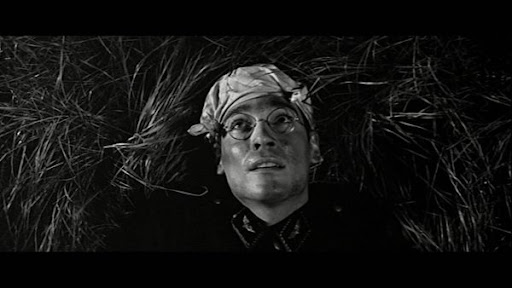
[...]Zentropa (1991), the film that first caught the world’s attention, is about a young American who works on a post-WWII German sleeping car as a gesture of ‘non-involved’ pacifist goodwill, but ends up furthering the evil plans of others with his every move. Frequently critics dismiss this film as a calculating, academic exercise but I feel that beneath the Wellesian virtuosity is a seething emotional attack against U.S. foreign policy and a somnambulant, complicit Europe. Also, it is a romantic cry of impotent rage and despair. The stunning visual juxtapositions constantly highlight the story. The protagonist Leo and (through the ominous, direct addressing of the audience by the hypnotist narrator) the viewer are drifting in and out of a Kafkaesque dream; black and white for dream state, color for waking. Zentropa is about a Europe on the verge of waking up from an evil nightmare, and although it is about the post-war reconstruction of Germany, it feels like it is about the consumption-induced stupor of the present. Interestingly, it depicts a Roman Catholic Church cooperating with Nazis, the same church von Trier would join a few years later.
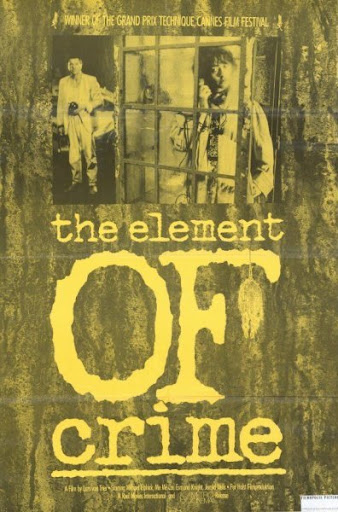
Element of Crime Technical Information:
Title: Förbrydelsens element/Element of Crime
Year: 1984
Country: Denmark
Director: Lars von Trier
Source: DVD9 Retail
DVD Format: NTSC
Container: .iso + mds
Size: 7.84 GB
Length: 1:43:27
Programs used: DVD Decrypter
Resolution: 720x480
Aspect Ratio: 16:9
Video: MPEG 2 @ ~5200 kb/s
Frame Rate: 29.97 fps
Audio: English- Dolby AC3 Stereo @ 192 kb/s
Subtitles: cc-English
Menu: Yes
Video: Untouched
DVD Extras:
- Tranceformer: A Portrait of Lars von Trier
- Trailer
Element of Crime Megaupload Links

Epidemic Technical Information:
Title: Epidemic
Year: 1987
Country: Denmark
Director: Lars von Trier
Source: DVD9 Retail
DVD Format: PAL
Container: .iso + mds
Size: 7.68 GB
Length: 1:41:47
Programs used: ImgBurn
Resolution: 720x576
Aspect Ratio: 16:9
Video: MPEG2 @ ~6500 kb/s
Frame Rate: 25 fps
Audio 1: Danish/English- Dolby AC3 Stereo @ 192 kb/s
Audio 2: Danish/English- Dolby AC3 5.1 @ 448 kb/s
Audio 3: English Commentary- Dolby AC3 Stereo @ 192 kb/s
Subtitles: English, Swedish, Dutch, Romanian, French, Norwegian, German, Danish, Finnish
Menu: Yes
Video: Untouched
DVD Extras:
- Anecdotes from Epidemic
- Trailer
- Commentary
Epidemic Megauplod Links

Europa Technical Information:
Title: Europa/Zentropa
Year: 1991
Country: Denmark
Director: Lars von Trier
Source: DVD9 Retail
DVD Format: PAL
Container: .iso + mds
Size: 7.93 GB
Length: 1:47:23
Programs used: DVD Decrypter, ImgBurn
Resolution: 720x576
Aspect Ratio: 2.35:1
Video: MPEG2 @ ~8500 kb/s
Frame Rate: 25 fps
Audio 1: English- Dolby AC3 Stereo @ 384 kb/s
Audio 2: English- Dolby AC3 5.1 @ 448 kb/s
Audio 3: German- Dolby AC3 Stereo @ 192 kb/s
Audio 4: Danish Commentary- Dolby AC3 Stereo @ 192 kb/s
Audio 5: English Commentray- Dolby AC3 Stereo @ 192 kb/s
Subtitles: English, Dutch, Romanian, Swedish, Norwegian, Finnish, German, French, Danish
Menu: Yes
Video: Untouched
DVD Extras:
- The Making of Europa
- Anecdotes from Europa
- Trailer
- Commentary
Europa Megaupload Links
